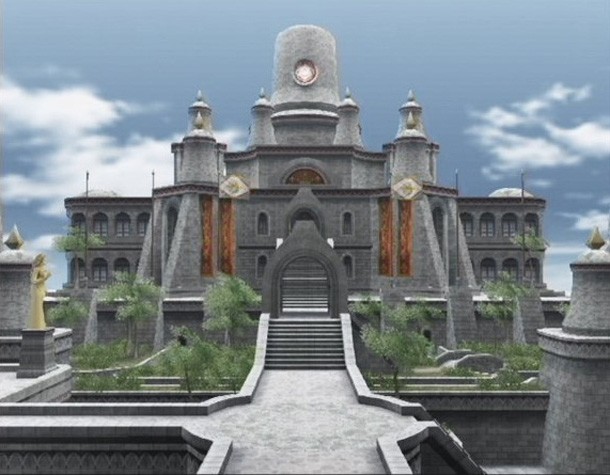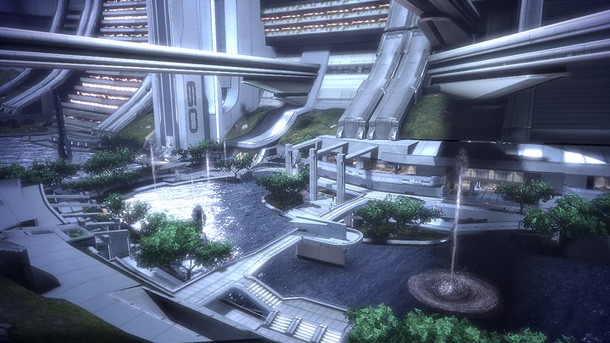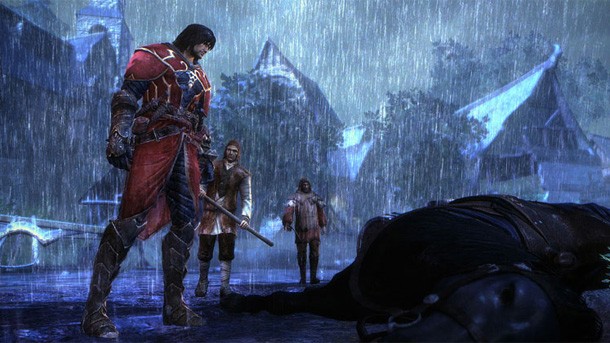Our extra-large special edition is here. Subscribe today and receive the 25% longer issue at no extra cost!
Slow Burns

Some games immediately grab you by the throat and dare you to look away. Bulletstorm opens with an explosive (and doomed) assault on an enemy ship. Uncharted 2 kicks off with hero Nathan Drake wounded and scaling a precariously balanced train, which lurches ever closer to the edge of a frozen cliff. And then there are...other games. Not every adventure begins with an explosive set piece. In fact, some slow burners take an hour or two to really get started. With that in mind, we're taking a look at some notable games that take a while to hit their stride.

Suikoden V
RPGs typically tell epic-scale stories, which means players usually have to wait a while before the game builds up a head of steam. Suikoden V’s first few hours are slow even for the genre. The story is filled with a huge cast and lots of political intrigue, and players will spend the first hour or so simply wading through text. It does get significantly better, but that first impression is a killer.

Mass Effect
BioWare’s sprawling space odyssey takes Commander Shepard and crew across the galaxy on the tail of a rogue agent and a mounting Reaper threat. Before any of that happens, however, players have to first endure two lackluster sections. First, there’s an unexceptional mission where the player tries to determine what happened to a colony. Next, players are whisked away to the Citadel spaceport. A huge, sparsely populated area that involves a lot of backtracking for those who want to complete all of the side missions. The Citadel is also quite boring to look at, which doesn’t help matters. In BioWare’s defense, Shepard can leave the area fairly early…but it means a lot of dangling quests in the log.

Heavy Rain
Quantic Dream’s game ends up being a character-driven thriller before
the credits roll, but you might not guess that from the way it starts.
Players put character Ethan Mars through his morning paces, shaving,
drinking orange juice, and playing with his children. Those quiet
moments give what happens next even more of an impact, but man are they
ever quiet.

Final Fantasy XII
Final Fantasy XII opens with some of the RPG genre’s biggest clichés. You battle your way through a sewer into a castle. Fighting rats. Don’t let those first few hours scare you off, though. Once you leave town and enter the Giza Plains, the game opens up significantly, providing one of the more memorable Final Fantasy experiences around. The MMO-esque landscape, roaming mobs, and enthralling hunts are enough to keep patient gamers entertained for hours.

Castlevania: Lords of Shadow
Castlevania: Lords of Shadow is proof that the series can excel in three
dimensions, though you wouldn’t know it at first. Gabriel Belmont
starts out in a rainy village, fighting off a werewolf. The battle is
largely communicated through QTEs, and few of the game’s myriad combat
systems are in place. After that, Belmont slogs his way through a swamp
that punishes speed with instant death. Whatever pace had been
established is nearly extinguished from the outset. Once you blast
through the first few hours you’re in for one of gaming’s best endings.

Fallout 3
So you want to explore a post-apocalyptic wasteland? You’re in luck!
Well, first you’re going to have to experience a highlight reel of your
life from the moment you were born until the day that Vault 101’s
reinforced doors flung open. Oh, you also get to take a standardized
test! It was a clever way to bypass a traditional, menu-driven character
creation system, but for people who wanted to get out and do something,
it was torture.

Assassin's Creed II
Ezio Auditore da Firenze is a great character, though you might not think that at first. When you’re introduced to him, he’s a cocky, arrogant womanizer. Personality flaws aside, he’s also prone to excessive flashbacks and tutorials. After seeing Altair in action in the first game, it was tough to get acquainted with another assassin, especially since it takes him so long to start assassinating. And just when you’re starting to get into the game, Desmond pops up and kills the momentum in his own special way.

Black & White
Black & White was billed as a god game with a twist: Rather than dishing out rewards and punishment yourself, you’d have some help in the form of a gigantic animal companion. First, you had to endure a series of tutorial missions that had nothing to do with gigantic animal companions. And when you finally flicked your last villager into the ocean and got your pet, you had to spend an inordinate amount of time training it to not eat its own ***. Being a god isn’t what it’s cracked up to be.

Get the Game Informer Print Edition!
Explore your favorite games in premium print format, delivered to your door.
- 10 issues per year
- Only $4.80 per issue
- Full digital magazine archive access
- Since 1991









